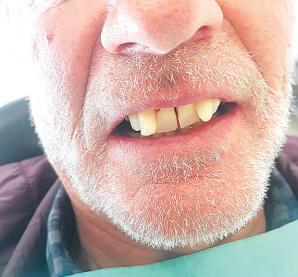
1 minute read
Fruit juice warning
SOME nutritionists now condemn fruit juice as worse than fizzy drinks.
They base their criticism on its high sugar content, arguing that although the sugars found in fruit juice are natural they remain sugars.
Drinking copious amounts could lead to a rapid spike in blood sugar levels, which could be problematic for people with diabetes or insulin resistance.
Consuming large amounts of sugar in any of its guises also increases the risk of developing type 2 diabetes, health experts say.
They also point to fruit juice’s low fibre content, which again can produce a rapid rise in blood sugar levels.
Learn Spanish Statin stats
GOOD news for all those living in Spain who are determined to get to grips with the language. Brain surgeon and neuroscientist Dr Rahul Jandial declared that people who learn a second language get a significant brain boost.

“A remarkable 2007 study in Toronto showed that people who speak more than one language developed symptoms of dementia about four years later than those who only spoke one,” Dr Jandial said.
He is also an advocate of skipping breakfast and the benefits of intermittent fasting. Going without food for a day contributes towards increasing the brain’s natural growth factors.
DESPITE the benefit of statins in controlling cholesterol levels, approximately 50 per cent of those prescribed them have reduced their dose or stopped taking them.
Their principal complaints centre on muscle pain and constipation, although a 2022 study of four million patients published in the European


15% of the population of UK hold a gym membership card.
Heart Journal claimed that statins’ side effects were probably close to 10 per cent.
Other researchers maintained that muscle pain, for example, was more likely to be the result of ageing rather than the medication.
Choc defence
NUTRITIONIST Rhiannon Lambert, author of ReNourish: A Simple Way to Eat, debunked as a myth the popular belief that chocolate causes acne. “Small amounts of chocolate won’t hugely impact skin health although chocolate with less sugar and dairy is preferable,” she said.
ALTHOUGH it affects around 60 per cent of adults, many are unaware that they have high cholesterol levels. But looking at their feet could provide them with a clue, Dr Sami Faroozi from the Harley Street Clinic recently told the Huff Post.

When the blood contains too much cholesterol, this can cause peripheral aerial disease (PAD) where fatty plaque has built up in the arteries and limits blood flow to the legs.
This in turn can affect the toenails, making them grow slowly or become brittle.


While the condition can occur in any blood vessel, it is most common in the leg, hence its affect on toenails, Dr Faroozi said.








